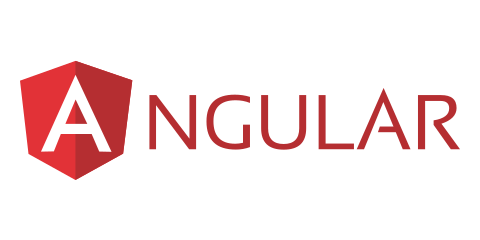
Angular vs Vue JS: Which Framework is better in 2022?
angular vs vue definitions: Angular is Google’s advanced and mature JavaScript framework. It is practical and useful, but it takes time to build applications. Vue JS, on the other side, is more suited to less demanding applications and is often used for swift prototyping.
I- Quick overview of the Frameworks
I.1- Angular – An overview

Angular was initially released in 2016, which was a complete rewrite of the 2010 AngularJS. The application framework was developed by Misko Hevery and the Angular team at Google. It is the same team that is handling the framework today, along with other external developers.
Angular is a typescript-based Javascript framework that helps businesses build scalable web applications. It is a standalone front-end framework with in-built tools and libraries that don’t hamper the size or application speed. Angular provides development opportunities across all platforms through its reusable code that can be used for any deployment target. It has a dynamic UI binding at a plain object or property level. Angular has a two-way data binding that is integral to its architecture.
I.2- Vue JS – An overview

Vue is a lightweight and flexible JavaScript-based framework that provides advanced web tools to develop modernistic SPAs and front-end web apps. Considered a versatile and progressive JavaScript framework, Vue JS allows change creation in an application code without having influence any core feature built and this provides the opportunity to create progressive UI. With high decoupling, Vue also offers opportunities to extend the functionalities of the web application with customized modules and visual components.
II- Usage Statistics – Angular and Vue JS
II.1- Angular Usage Statistics
- Amongst the JavaScript library, we are aware of, Angular is used by >0.4% of all websites.
- While fewer sites use Angular, it is primarily used by high-traffic sites.
- Angular has 72.6k stars, 19k forks, approximately 1300 contributors, and a repository of 1.7 million users on GitHub.
Angular is used by 16.1% of developers worldwide.
II.2- Vue Usage Statistics
- There are currently more than 1,523,449 successful websites that use Vue globally.
- 88.9% of the websites that use Vue prefer Vue v2, and the market share held by the framework is not more than 0.5% overall.
- The community of Vue is approximately 174k, with 26.7k forked projects.
III- Pros and Cons of Angular and Vue JS
We'll compare Angular and Vue JS to identify their best features and limitations.
III.1- Pros of Vue JS
- Progressive: Migration or integration of Vue can be easily managed by gradually introducing the framework into code while developing components is under process without having to waste any development time.
- Conventional: Vue does not make writing boilerplate code harder by using in-built solutions to create state support for managing components and animations. The conventional approach makes the whole process of building applications with Vue faster.
- Effective Size: With every new version of Vue that gets released, the framework gets even lighter and faster. The optimization ability if Vue allows developers to focus more on feature addition than debugging or code tweaking.
III.2- Cons of Vue JS
- Community: Vue has a community that lacks language understandability. With Vue being popular in regions around China, most of the discussion for Vue is in Chinese, making it difficult for learning, sharing resources for English-speaking developers.
- Code Reactivity: The two-way binding nature of Vue comes in handy to create and sync components across an application. It also results in the rendering of data chunks or parts of features triggered by the DOM.
- Support: Vue is still considered as a young framework, and since its community is relatively small when adopted for large scale projects, resolving less experienced developers cannot handle issues that arise for large scale projects.
III.3- Pros of Angular
- Advantage of TypeScript – The superset for JavaScript offers superior navigation, refactoring services, and autocomplete, eliminating errors within code while developing enterprise-scale applications.
- Google Support – Long-term Google support backed with detailed documentation and further possibilities of expanding the framework with improved developmental features.
- High Performance – Provides high performance to the developers ensured by the hierarchical dependency injection, Ivy renderer, AOT compiler, differential loading, and Angular Universal support.
III.4- Cons of Angular
- Complexity – Despite its component-based architecture, the management of components and repetitiveness make the frontend framework verbose for its development community.
- Angular Versions – Migrating from AngularJS to Angular is a huge hassle for the developers, even more, when the framework application is vast. Moreover, learning about each version makes the learning curve steeper and decreases its popularity.
- Heavily weighted framework – Simple and small applications can become bloated because of their requirements of boilerplate codes, abstractions, and other bundled features.
In case you wondering, Website development is one of Letket’s services. And we can help you build your using using either Wix or a CMS like Worpress. More details here

